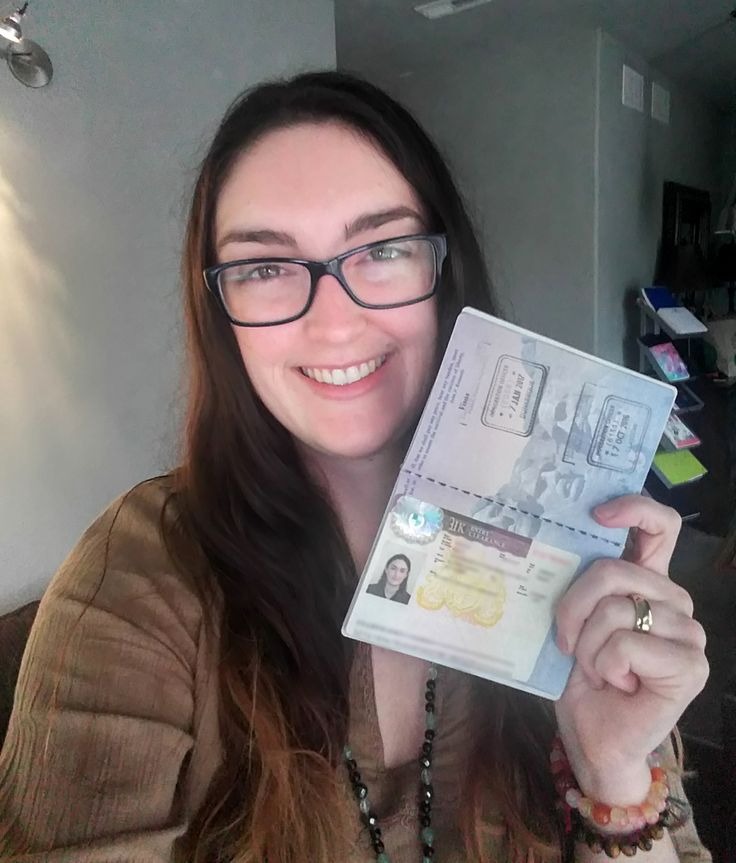Canada Work Visa Application Processing Times & How to Expedite Them
Canada remains one of the most sought-after destinations for professionals and workers worldwide, offering high living standards, an inclusive workforce, and a thriving economy.
If you’re planning to work in Canada, understanding the work visa application process, including typical processing times and how to expedite your application, is essential.
Results
#1. What is your primary reason for considering a marriage visa?
#2. Do you know which documents are required for a marriage visa application?
#3. How soon are you planning to apply for a marriage visa?
#4. Are you aware of the benefits a marriage visa provides?
#5. Which challenge do you think is the hardest part of applying for a marriage visa?
#6. What support would be most helpful to you during the application process?
This article will dive deep into Canada’s work visa categories, typical processing timelines, how to speed up the application process, and answer some of the most frequently asked questions about Canadian work visa.
Overview of Canada Work Visa Types
Before diving into processing times, it’s crucial to understand the different types of work visas available in Canada, as each type has unique requirements and processing times.
1. Employer-Specific Work Permit:
This is the most common type of work visa, where applicants require a job offer from a Canadian employer. In most cases, the employer must also obtain a Labour Market Impact Assessment (LMIA) from Employment and Social Development Canada (ESDC).
2. Open Work Permit:
An open work permit allows workers to work for any employer in Canada. This visa is often granted to spouses of skilled workers or international students who have completed their studies at a recognized Canadian institution.
3. Post-Graduation Work Permit (PGWP):
Available to international students who have completed their studies at a designated learning institution in Canada. The PGWP allows graduates to work for any employer in Canada and is usually valid for up to three years, depending on the length of the academic program.
4. Global Talent Stream Visa:
A part of the Temporary Foreign Worker Program, the Global Talent Stream is designed to help highly skilled foreign workers fill critical positions in Canada. Processing for this stream is fast-tracked and typically takes only two weeks.
5. International Experience Canada (IEC) Work Permits:
This program allows young people from eligible countries to live and work in Canada temporarily. It is popular among those seeking short-term work opportunities in Canada.
Each work visa category has specific eligibility criteria and documentation requirements, which can impact the processing time.
Factors Affecting Work Visa Processing Times
Work visa processing times can vary greatly depending on a range of factors. Here are some key elements that can influence the processing time:
1. Visa Type:
Different visa types have different processing times. For example, the Global Talent Stream has an expedited processing time of approximately two weeks, while an employer-specific work permit may take several weeks or even months.
2. Completeness of Your Application:
Incomplete applications or missing documents can cause significant delays. It’s crucial to ensure that your application is complete and all required forms, supporting documents, and fees are included.
3. Country of Residence:
Processing times can differ based on the applicant’s country of residence. Some countries may experience longer delays due to local conditions, such as administrative backlogs or additional security checks.
4. Immigration Backlogs:
During peak application periods or high-demand seasons, the volume of applications can cause delays. For instance, holiday seasons or periods following policy changes often lead to increased application volumes, which can extend processing times.
5. Medical Examinations and Security Checks:
Certain work visas require medical exams or background checks. These additional steps may take several weeks or months to complete and can delay the overall process.
Typical Processing Times for Work Visas
The processing times for work visas can range from a few weeks to several months, depending on the visa type and applicant’s country of residence. Below are the typical processing times for various work visas:
Visa Type Typical processing time
Employer-specific work permit: 10 to 35 weeks
Open Work Permit: 6 to 20 weeks
Post graduation work permit: 6 to 8 weeks
Global Talent Stream: 2 weeks
International Experience Canada: 4 to 8 weeks
How to Expedite the Work Visa Application Process
While processing times can vary, there are several ways to speed up your work visa application:
1. Apply Through the Global Talent Stream:
If you’re a highly skilled worker, applying under the Global Talent Stream can expedite your processing time significantly. This program is designed to process applications within two weeks, which is ideal for those with job offers in high-demand sectors.
2. Submit a Complete Application:
One of the most common causes of delays is incomplete documentation. Be sure to include all necessary documents, including proof of job offers, educational qualifications, language proficiency test scores, and any other required paperwork. Missing or incorrect details can result in a refusal or requests for further documentation, which prolongs the process.
3. Request Priority Processing:
In cases where you have a specific need for expedited processing, such as a job start date approaching quickly, you can request priority processing. This requires proof of urgency and is generally available for certain categories of applicants.
4. Submit Your Application Online:
Applying online through the Immigration, Refugees, and Citizenship Canada (IRCC) portal is faster than submitting paper-based applications. Online applications also allow you to track your application status and receive notifications directly.
5. Work with an Immigration Consultant:
A qualified immigration consultant or lawyer can help ensure that your application is properly prepared and submitted. They are well-versed in immigration processes and can offer valuable advice that may help expedite your application.
SEE ALSO:
Health Insurance Cost for Immigrants in Canada
How much do Spousal Immigration Lawyers charge in Canada
How to apply for Work Visa as a Freelancer in Canada
6. Check for Special Programs:
Canada regularly introduces pilot programs or temporary policies to speed up the processing of certain applications. For instance, the Express Entry system is designed to fast-track applications for permanent residency. Keep an eye on government announcements for any new opportunities.
FAQs on Canada Work Visa Application Processing Times
How long does it take to get a Canadian work visa?
Processing times vary by visa type. Employer-specific work permits typically take 10 to 35 weeks, while programs like the Global Talent Stream offer much faster processing, sometimes within two weeks.
Can I expedite my work visa application?
Yes, you can expedite the process by applying through fast-track programs like the Global Talent Stream, submitting a complete application, or requesting priority processing if you have an urgent need.
Do I need an LMIA for all work visas?
No, not all work visas require an LMIA. Open work permits and certain work permits under international agreements (e.g., NAFTA) do not require an LMIA.
How do I know if I need a medical exam?
Applicants from specific countries or those applying for jobs in healthcare, childcare, or agriculture may need a medical exam. The IRCC will notify you if a medical exam is required.
How can I track my application status?
You can track your application status online using the IRCC portal. You’ll receive updates on your application and can check if additional information or documentation is needed.
What happens if my work visa application is denied?
If your work visa application is denied, you will receive a letter explaining the reasons for refusal. You can appeal the decision or correct the issues and reapply.
Can I work while my work permit application is pending?
In some cases, such as if you’re renewing an existing permit, you may be eligible for “implied status,” allowing you to continue working while waiting for a decision. However, this is only applicable in specific situations.
How can I improve my chances of getting a work permit?
To improve your chances, ensure that your application is complete, includes all required documents, and complies with the specific visa requirements. Consider hiring a licensed immigration consultant if you need assistance.
Is there a cap on the number of work permits issued?
Some categories of work permits, such as those under the International Mobility Program, may have caps. However, most work permits are not capped, and applications are processed as long as they meet the eligibility criteria.
Can my family join me on a work permit?
Yes, in most cases, your spouse and dependent children can apply for open work permits or study permits to join you in Canada.
What if I change employers while my work visa is in process?
Changing employers while your application is being processed can complicate the situation. You may need to submit a new application or request a modification, depending on the visa type. It’s crucial to inform IRCC of any changes during the application process.
Can I apply for permanent residency while on a work permit?
Yes, many work permit holders are eligible to apply for permanent residency through programs like Express Entry or provincial nominee programs, especially if they have Canadian work experience.
Final Thoughts
Applying for a Canadian work visa involves several steps, and understanding the processing times and ways to expedite the application can make the process smoother.
Whether you are a highly skilled worker, an international graduate, or part of a temporary work exchange program, knowing how to speed up your application can help you start your career in Canada sooner.
By ensuring that your application is complete, utilizing expedited programs, and staying informed about new opportunities, you can improve your chances of timely approval.
Always consider consulting with immigration experts to ensure that you meet all requirements and submit the most efficient application possible.











